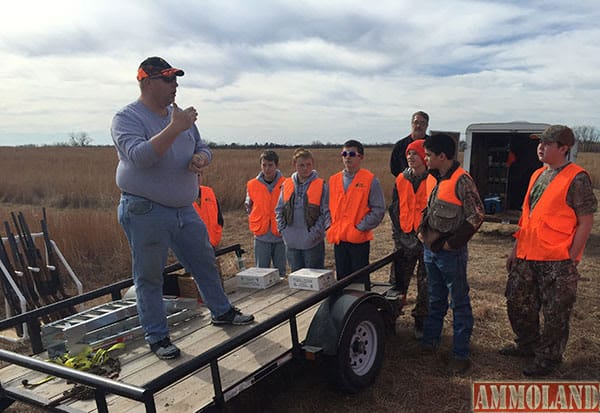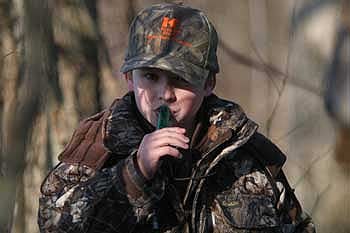By Jason Reid


Las Vegas, NV -(AmmoLand.com)- This week while the SCI convention took place, the Humane Society of the United States ran a small protest and held a press conference across the street from the Mandalay Bay.
Clearly opposing the activities taking place here, word spread quickly throughout the show of yet another ridiculous attempt at overshadowing hunting by these extremists. Unfortunately this is becoming more and more common.
They even went as far as to claim they were conservationists. The nerve they have is incredible. The truth is hard to bring to light anymore when their emotion grabs the spotlight. What does the future hold and how do we take back the conversation on hunting?

Six influential and well educated individuals from around the world sat on a panel discussion moderated by Jeff Crane from the Congressional Sportsman’s Foundation. Ivan Carter and John Svalby joined Montana Senator Steve Daines, Montana Congressman Ryan Zinke, along with Melissa Bachman and Louis Muller. These six spent over two hours discussing how we can harness our power as a hunting culture to face the challenges ahead. North America, Europe and Africa were represented showing these are issues not just felt here but are issues from around the world.
Congressman Ryan Zinke was the first to speak up. Please note Zinke is a former Navy Seal, and you could tell by the way he carried himself and addressed the crowd. His views are grounded but optimistic.
“There is a war between rural and urban cultures with conservation, sportsman and hunting rights caught in the middle. The best way to fix it is to band together and while the various conservation and hunting organizations may disagree on the fringes, we are all heading in the same direction.”
Zinke is right in saying this because of the growing separation between rural and urban lifestyles. There are fundamental differences. There is nothing wrong with either. Because the population shift is heading towards the urban centers, along with it goes the political influence which has detrimental effects to the lifestyles and influential representation of those living in the country. Typically we associate a country & rural lifestyle with conservative principles with which hunting is intertwined. Conservation and hunting issues are caught in the tide and are often not given the attention they need or deserve. In this regard, conservation and hunting issues face challenges since Zinke told us, decisions are being made based on power, not always on what is right.

Ivan Carter says, “The future of hunting in general is in our hands but the non hunting public needs to be educated.” As a culture it is no secret we love talking to each other but fail to put consistent efforts to educating the non hunting public. Cater said “If we can dig in our heels to make a stand we can shift the conversation.” Carter also said, “As hunters we don’t explain the full story of what is going on and we need to be careful with how we communicate.”
“We are showing everyone what kind of hunters we are instead of showing people what kind of conservationists we are first and hunters second.”
Louis Muller from Pro Safaris South Africa commented, “As hunters when we are challenged about where the only goes for conservation we fall silent.”
For Louis this is a subject near and dear to him as he sees first hand how the money generated from lion hunting goes to fund the anti-poaching efforts. He sent a stern warning saying if there is a full ban on importing the lion trophy to the US, this will dry up the funding to support conservation in certain parts o Africa. He said lions are the cornerstone of conservation as they bring in the most money, specifically from the US. Money generated from other species would not be enough and wildlife would suffer in his home of Zimbabwe.
Hunting is in our DNA. Regardless of what country you come from it is hard wired into our beings. Since hunting is such an intrinsic activity, it is hard for us as hunters to always accurately communicate the advantages, features and benefits of conservation and hunting. Our attempts to communicate don’t always do what we need them to do. So how can we take steps to fix this?

Check out part two of this panel discussion by clicking the following link:
About Jason Reid:
Jason Reid is a writer and business professional from upstate New York. After deciding to pursue his dream of becoming an outdoor writer, Jason started a blog from his dorm room at Houghton College, growing it and working hard to earn opportunities. While bowhunting big game is his ultimate passion, Jason welcomes all outdoor challenges which force him to push his limits. See more from Jason on Facebook, Twitter, and Instagram.
Jason’s work can also be viewed on his website Pushingthewildlimits.com.
